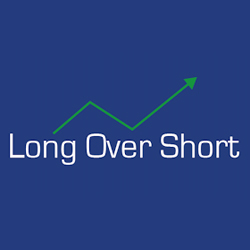“With every trade or investment there are four possible outcomes. You can have a small win, big win, small loss or big loss. As long as we make sure we eliminate the big loss from happening, we can certainly live with the other three.” – Sam Seiden

What’s the most important thing every trader can/must do? What’s the greatest trading skill in the world?
One market wizard was asked this question, and he answered that there are 3 things you must do:
1. Cut your losses.
2. Cut your losses.
3. Cut your losses.
If you can do these three things, then you may have a chance of becoming a successful trader.
Warren Buffet also has been quoted as saying that there are two most important things you must do:
1. Don’t lose your money.
2. Don’t forget the rule above.
The market has no respect for your educational background or achievements. It has not respect for your high school diploma or a collection of PhDs. The market doesn’t respect your political posts or achievements. The market doesn’t respect any strategy you use whatsoever: whether simple or complicated. The market doesn’t know whether you’re highly experienced or have no experience. The market has no knowledge of your religious background, beliefs and titles (whether you’re a bishop, primate, general overseer, etc.). The market has no acknowledgment of your race, tribe, nationality or region or age or gender. It doesn’t know if you’re a chairman or a president or an administrator or a manager or a CEO or a founder. The market has no sympathy for your poor background or your rich status. You may be a celeb, a star or a hero somewhere else, but the market couldn’t care less. The market couldn’t care less whether you’re a chief market strategist or a currency analyst or a senior analyst or an official analyst or a coach or a funds manager or a website manager or an accomplished programmer or a software developer or a financial journalist. The market has no regards or honor for who or what you’re. The only person the market respects is the person that cuts his losses.
When you see professional traders dashing themselves against the floor of their trading rooms and crying like a baby, it’s because they don’t cut their losses. When you see a pro trader running to a medical doctor for help; while the doctor says there’s nothing wrong with her/him, it’s because she/he doesn’t cut their losses.
The best trader in the world is excellent at cutting his losses. When a trade is opened according to a technical or fundamental signal, the best trader opens his trade. However, if there’s a loss, he quickly closes the trade. There’s no hope or question or argument from the best trader. When a trade doesn’t work, he closes it. But another trader – the crazy speculator – argues in favor of significantly losing positions.
Losses are like weeds in a garden while profits are like flowers in the garden. We want to remove our weeds and water our flowers. We don’t want to water our weeds and remove our flowers, but according to cold reality, many traders remove their flowers by cutting their profits and water their weeds by allowing their losses to run.
Your ability to cut your losses when they’re still insignificant is the most important aspect of your trading career. It’s the greatest determinant of your everlasting success, your ability to survive losing streaks (which all proficient traders must inevitably face occasionally), and the possibility of ending up being profitable.
Someone with 80% accuracy will lose his money eventually for failing to cut her/his losses while someone with 40% accuracy will ends up winning eventually for cutting losses. When 80% profits are cut and 20% losses are run, she/he ends up losing money because the 20% losses that aren’t controlled can take away all the profits and provide further negativity. When the 60% losses are cut and 40% profits are allowed to run, she/he ends up making money.
Triumphant traders focus on what they can really control, i.e. their losses (plus profits), knowing full well that their overall success has nothing to do with their strategy which simply shows them when to buy or when to sell. The knowledge of fundamentals, technicals, Elliot Wave, Fibonacci, programming, etc. can’t help you if you fail to cut your losses. When an Elliot Wave company makes forecasts and loses, they can be saved only by cutting their losses. Decades of experiences can’t help you unless you are good at cutting your losses. Failure to cut your losses will eventually lead to frustration.
Great fundamental figures like Non-farm Payroll have sent some people to their grave because they bet too big and failed to cover their losses. On the other hand, these great fundamental figures have benefitted sane speculators as well.
If you believe in scalping or robots or candlestick patterns, don’t forget that the ability to cut your loss while it’s small is the ultimate thing. When you enter a trade based on a Hanging Man (Hammer), you might later see it as a “Sitting Man (fata morgana)” if you don’t cut your losses. Whether you follow signals or copy trades, cut your losses. Whether you use 5-minute charts, or 30-minute charts, or hourly charts, or 4-hour charts or daily charts, cut your losses.
You shouldn’t bet big in the first place: only bet very small. When the small bet proves to be wrong, then exit with a small loss. This is your life insurance in the market. A small loss that’s allowed to run can metamorphose into a gargantuan negativity.
When I place a trade and it loses, I exit at a predetermined level.
When I place another trade and it loses, I exit at a predetermined level.
When I place another trade and it loses, I exit at a predetermined level.
When I place another trade and it loses, I exit at a predetermined level!
When I place another trade and it loses, I exit at a predetermined level!!
When I place another trade and it loses, I exit at a predetermined level!!!
Anytime I see a weed, I don’t allow it to grow. I can continue losing, and usually, I don’t go down more than 5% in worst-case scenario. After all, the existence of my account is the most needed thing, not the profits on it. When a winning streak comes around, I quickly recover. This is the most effective way to make uncertainties my ally.
With a series of stop loss triggers, breakeven triggers, trailing stop triggers and take profit triggers (alternating themselves randomly), I’m sure to move ahead in the long run, no matter how slowly.
You remain victorious as long as you cut your losses without hesitation. Last month, I made a profit of 950 pips as a result of cutting my losses. I’m not better than other traders – neither is my strategy. I realize that cutting my losses is what I must do in order to make profits consistently and enjoy permanent success as a trader. Ability to cut losses is a huge edge indeed! Please don’t let your competitor know about this.
The quote below ends this piece:
“Cut Your Losses Short and Let Your Winners Run,” is the salvation of our trading plans. Since we will both win and lose, big winners outshine small losses every time… Here’s a rule we can take to the bank: Whenever you identify HOPE as the primary reason for holding a position, CLOSE IT IMMEDIATLY!” – Bob Robertson
Source: Tallinex.com
What Super Traders Don’t Want You To Know: Super Traders


 Hot Features
Hot Features












